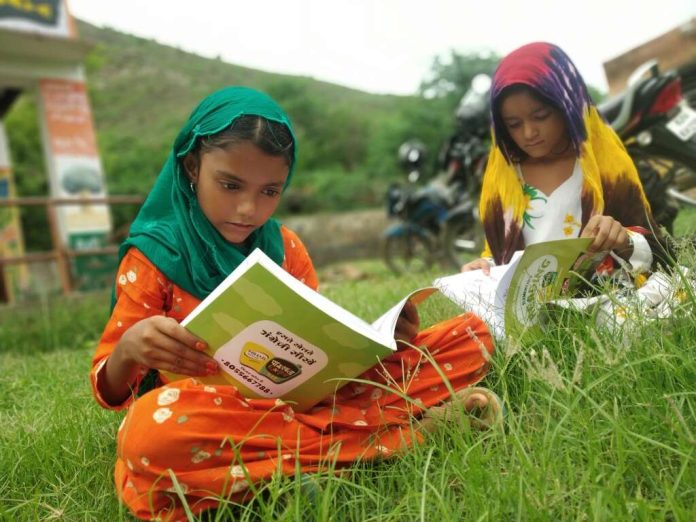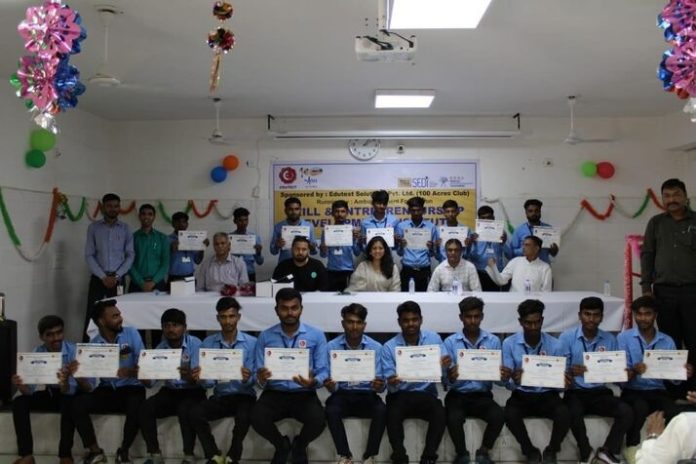How Organisations Can Support Mobile Workforces with Diabetes – From Prevention to Management
Mumbai, India: As global mobility surges, managing chronic conditions like diabetes during travel has become a significant concern. Diabetes remains one of the fastest-growing global public health issues1, affecting approximately 422 million people worldwide and causing 1.5 million deaths annually.2 International SOS, the world’s leading health and security services company, has reported a significant year-on-year increase in diabetes-related assistance cases over the past three years, with a 28% increase in 2022 and a 32% increase in 2023. Meanwhile, year-to-date 2024 data indicates a further uptick.3 With World Diabetes Day approaching on 14 November, organisations are urged to support diabetes prevention and management strategies. This year’s theme, ‘Breaking Barriers, Bridging Gaps’4 highlights the need for equitable, comprehensive and affordable diabetes care.
Dr Vikram Vora, Medical Director and Chief Health Officer (Indian Subcontinent) at International SOS, emphasises the need for an organizational strategy to manage diabetes within the workforce: “With India having the unfortunate distinction of being the diabetes capital of the world, it is important for organisations to recognize the challenges that diabetics and pre-diabetics in their workforce face. This can help build a strategy around reducing disease burden and promoting wellbeing, when done in conjunction with health experts. Providing support for onsite monitoring of blood glucose levels, making information readily available and by ensuring accessibility to medical personnel and disease management care plans, organizations can ensure an effective response that helps maintain health and productivity, while fostering a supportive and inclusive work environment.
People with diabetes face the risk of developing ‘metabolic syndrome’, with hypertension, mid-segment obesity, high blood glucose levels and dyslipidaemia, compounded by the psychological toll that diabetes takes on those affected. Individuals with diabetes are two to three times more likely to experience depression compared to those without the condition.5 These challenges can significantly impact employee wellbeing, leading to increased absenteeism, reduced productivity and higher healthcare costs for employers.
According to The International Diabetes Federation (IDF), the global healthcare costs for individuals living with diabetes are expected to exceed $1054 billion by 2045.6 Furthermore, the prevalence of diabetes is projected to rise, with 643 million people affected by 2030, and 783 million by 2045.7 With this rising prevalence, it is crucial for organisations to implement strategies that help their workforce manage and prevent this chronic condition. Minor adjustments can reduce absenteeism, increase productivity, concentration and energy levels and reduce the chance of on-the-job injury.
Dr Vikram Vora continues, “Early diagnosis is crucial. Raising awareness about diabetes symptoms at the workplace can prompt people to get screened and early detection through annual health checks and periodic onsite monitoring and intervention can help prevent or delay onset of diabetes. This proactive approach can prevent undiagnosed diabetes from causing severe health complications, affecting various organ systems, including eye damage, heart and kidney disease, nerve damage and poor wound healing. By prioritising employee health, organisations can enhance productivity and foster a more engaged and resilient workforce. This approach also promotes a positive work environment and supports overall employee wellbeing.”
International SOS offers five tips for organisations to support employees in managing and preventing diabetes:
1. Education and Awareness: Increase awareness about diabetes symptoms to encourage early diagnosis and effective management, thereby preventing severe health complications.
2. Provide Comprehensive Health Solutions: Offer resources such as dietary guidelines, exercise programmes and regular health screenings to help employees manage their diabetes.
3. Supportive Culture and Policies: Develop and implement policies allowing for flexible work schedules and access to medical care while travelling. Foster a culture that prioritises health and wellbeing by accommodating regular meals and exercise, and ensuring employees have time to rest and recover from travel.
4. Promote a Healthy Lifestyle: Offer guidance on maintaining a healthy diet and regular exercise. Provide resources such as a list of healthy meal options and tips for finding nutritious food in different locations.
5. Facilitate Health Monitoring and Provide Adjustments: Ensure employees have scheduled breaks to take medication, check blood sugar levels and eat regular meals. Provide a private space for insulin administration and other medical needs.
Disclaimer: This media release is auto-generated. The CSR Journal is not responsible for the content.
PETA India shares ‘Go Vegan’ billboard in multiple cities urging people to avoid dairy and save calves

Delhi, India: “Because You Consume Dairy, Calves Die.” That’s the provocative sky-high message that’s just been erected in Delhi to coincide with World Vegan Month (November), courtesy of People for the Ethical Treatment of Animals (PETA) India. The billboard is part of the group’s nationwide campaign calling attention to the hidden suffering behind dairy milk production and urging viewers to leave mother cows and buffaloes and their calves in peace by going vegan. (Vegans are vegetarians who reject all animal-derived foods.)
PETA India’s billboard is located on Press Enclave Marg, Gandhi Park, Hauz Rani, Malviya Nagar, New Delhi. The group has also placed the appeal in Bengaluru, Chennai, Hyderabad, Kolkata and Mumbai.
“Every drop of dairy spells misery for male calves, who are slaughtered, starved to death, or abandoned, since they cannot produce milk, as well as immense grief for their mothers. Female calves are also commonly torn away from their mothers and fed a replacer just so that the milk meant to nourish them can be stolen and sold to humans. PETA India urges everyone to choose compassion and opt for the many delicious vegan milks, yogurts, and cheeses that no one had to suffer or die for and that can also be easily made at home with nuts or other simple ingredients,” says PETA India Manager of Vegan Projects Dr Kiran Ahuja.
In India, the beef industry is largely able to exist because the dairy sector supplies it with animals to kill. India is the second largest beef exporter in the world, and although the export of cow flesh is illegal, there have been reports of cow meat being mixed in with buffalo meat for exports. Today, cows and buffaloes used for dairy are increasingly being raised in a factory farm environment and artificially inseminated – that is, raped: a worker inserts an arm into the rectum and a metal rod carrying bull semen is forced into the vagina.
In addition to sparing animals immense suffering, each person who goes vegan shrinks their food-related carbon footprint by up to 73% and reduces their risk of suffering from cancer, heart disease, diabetes, and obesity.
PETA India notes that mother cows and buffaloes are devoted parents. In Uttara Kannada, one mother attempted to block the same bus every day for at least four years after it killed her calf in a traffic accident. She never tried to stop any other vehicles, and she continued this routine even after the driver changed the colour of the bus.
Disclaimer: This media release is auto-generated. The CSR Journal is not responsible for the content.
National Education Day: FMCG company reaffirms commitment through flagship CSR initiative Nihar Shanti Pathshala Funwala program

Mumbai, India: Observing National Education Day this year, Marico Limited, one of India’s leading FMCG companies, reaffirms its commitment to educational empowerment through its flagship initiative— Nihar Shanti Pathshala Funwala (NSPF) program.
Recognizing that many teachers in underserved regions lack business language proficiency, NSPF’s education Program upskills and empowers them through targeted training and innovative teaching materials. Aligned with FLN and NIPUN Bharat, the program enhances teachers’ subject knowledge, boosting students’ reading, spelling, vocabulary, and comprehension skills. It combines digital and offline tools to create an engaging, rural-focused learning environment.
Over the past four academic years, NSPF has made remarkable strides, enhancing education across government schools in Rajasthan, Madhya Pradesh, Chhattisgarh, and Jharkhand through dedicated teacher engagement and support. Across the three states – Madhya Pradesh, Chhattisgarh and Jharkhand, NSPF has trained teachers from 1.31 lakh schools and over 15 lakh students. This represents 85% of the total schools in these states. Additionally, 94% of the schools that NSPF works with are rural.
As part of its mission, Nihar Shanti Pathshala Funwala, along with its partner, LeapForWord, has been implementing a Three-Layered Program Monitoring structure to strengthen support and assessment across classrooms. This includes call-based support, online classroom evaluations, and on-ground school visits, creating a structured system to track and encourage teacher engagement. Additionally, it has launched the Saturday Story Session (SSS), a weekly YouTube program that enhances students’ reading, listening, and comprehension skills. With over 175000 lakh trained teachers in FY24, the program has transformed the foundational learning, and numeracy in regional government schools.
Focusing on teacher empowerment, NSPF has introduced pioneering initiatives to support educators effectively. Teacher Support System (TSS), a new rural-based call center is central to this strategy. TSS offers tailored guidance to all the registered teachers, providing invaluable support to enhance teaching practices in classrooms. Staffed by more than 100 trained local women, TSS enables NSPF to make close to 1 million calls annually, delivering the largest direct support to teachers in the sector. In addition, the Word Power Championship, a flagship initiative by LeapForWord in collaboration with Marico’s NSPF, has been adopted by various state governments. The program has inspired children and fostered a sense of pride among teachers, who have witnessed their students’ growing confidence. Word Power Championship competition motivates students to improve their vocabulary and reading skills, fostering a collaborative learning environment.
Commenting on the success of the program, Mr. Amit Bhasin, Chief Legal Officer & Group General Counsel and Secretary of the CSR Committee, Marico Limited said, “At Marico, we strongly believe that teachers lay the foundation of education, and by nurturing and empowering them, we can enable the students to reach their fullest potential. Through key initiatives such as the Teacher Support System and the Word Power Championship, we are creating the opportunities for teachers and students to drive education in rural communities. The Teacher Support System team has built a strong, dedicated team that brings essential cultural and contextual insights to teacher support. This rural understanding has led to tailored solutions that resonate with teachers in underserved regions. Additionally, the growth in outreach has further helped us to refine our approach to better serve teachers and students.”
He also added, “Besides teaching, I am also proud to share that NSPF has created growth opportunity for many women, marking their first involvement in a formal work environment, where employment options were previously limited. Our aim is continue making a meaningful difference.”
Currently active in Madhya Pradesh, Chhattisgarh, Jharkhand, and Rajasthan (Alwar), NSPF is set to expand its footprint with ambitious future goals to support more teachers and students across India. With a focus on scalability and long-term impact, Marico Limited, through the Nihar Shanti Pathshala Funwala, is laying the groundwork for education that can transform lives across generations.
Disclaimer: This media release is auto-generated. The CSR Journal is not responsible for the content.
















